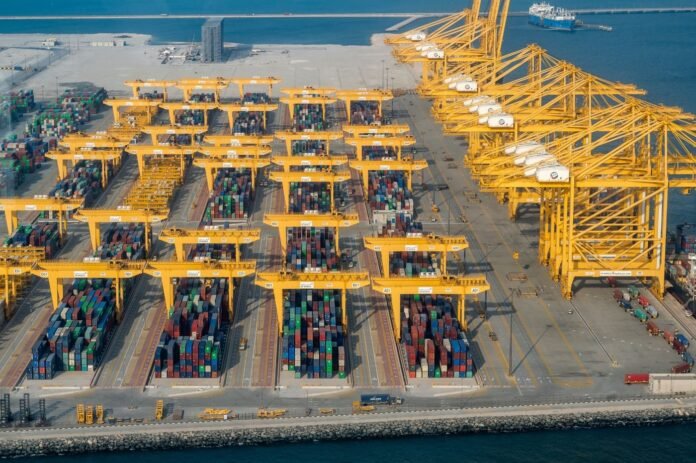Abu Dhabi, United Arab Emirates – The UAE’s maritime sector has established its leading global position through qualitative initiatives and projects that place sustainability at the heart of its development policies, enhancing its contribution to building a sustainable national economy based on innovation and protecting environmental resources.
According to the Ministry of Energy and Infrastructure, the country currently operates 106 ports in 78 countries, and its annual handling exceeds 21 million containers, with a contribution exceeding 135 billion dirhams to the gross domestic product, reflecting the growing economic importance of this sector.
The UAE’s maritime sector implements integrated policies for marine waste management and ship recycling. In this context, the Ministry of Energy and Infrastructure recently launched, as part of the third package of transformational projects, the “Green Oasis of the Gulf” project, which is the first initiative of its kind in the region to legalize off-shore ship recycling operations in a safe and environmentally friendly manner. The Ministry also issued a comprehensive regulation concerned with the safe cutting of ships, ensuring environmental protection and worker safety This makes the UAE one of the few countries that implements such advanced legislation.
To enhance national capacity building in the maritime sector, the country has established advanced maritime academies, such as the Abu Dhabi Academy and the Sharjah Academy, to train and qualify national cadres in accordance with International Maritime Organization standards. These efforts have contributed to raising the efficiency of human resources and ensuring the readiness of Emirati talent to lead the sector.
His Excellency Hessa Al Malik, Advisor to the Minister of Energy and Infrastructure for the Maritime Transport Sector, said in statements to the Emirates News Agency “WAM” that the UAE adopts advanced technologies in the design and operation of ships, from smart shipping models to automated navigation systems, supported by research and development programs in universities and specialized centers, which reflects the country’s commitment to consolidating innovation at the heart of its maritime renaissance.
She added that the country has made significant strides in environmental sustainability, starting with the launch of the UAE Energy Strategy 2050 and the National Hydrogen Strategy 2050, all the way to developing green infrastructure to supply ships with low-sulfur fuels and natural gas. Ports have also invested in emissions reduction projects and hosted high-profile international events such as COP28, reflecting a firm commitment to climate and the marine environment.
In the field of digital transformation, Al Malik pointed out that the UAE has launched a series of technical projects, including “Blue Pass” as a unified digital platform to connect ship operators, ports and providers. Ports have also witnessed a qualitative shift thanks to the automation of loading and unloading services and the connection of digital systems to various means of transportation, which has helped speed up operations and reduce emissions.
She stressed that these achievements embody the UAE’s distinguished position in the International Maritime Organization, as it has ratified 35 international instruments, contributed to developing standards for self-driving ships and combating fraudulent registration, and graduated 497 officers and engineers from its academies, including 100 women, which reflects the state’s commitment to equality, as the state proposed the Equality Award to the organization’s council and it was approved and approved, while she chaired the Arab Maritime Women’s Association.
She explained that this integrated system of projects and achievements reflects the UAE’s commitment to an ambitious and sustainable maritime vision that supports the transition towards a green economy and smart ports, and consolidates its position as a global maritime platform at the heart of international trade.
She noted that the UAE will host the parallel event of World Maritime Day in September 2025 under the theme “Our Ocean, Our Responsibility, Our Opportunity,” launching qualitative initiatives to support the decarbonization of maritime shipping and promote innovation and sustainable technologies.









